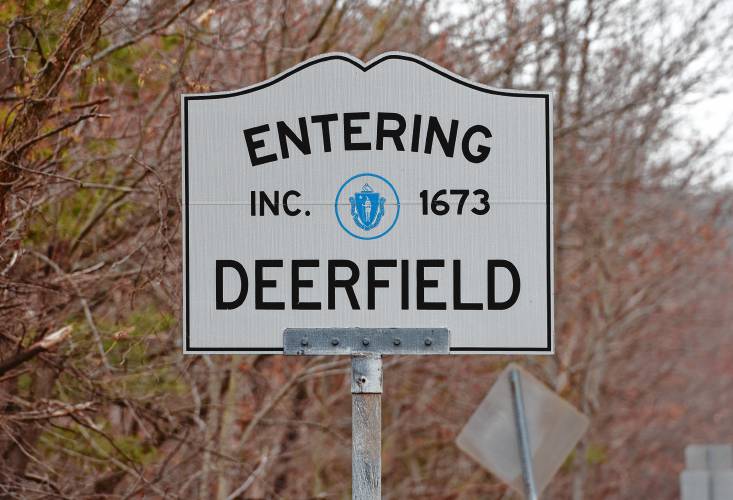$50K grant will fund geothermal heat study in South Deerfield

| Published: 03-11-2024 8:40 AM |
DEERFIELD — With the help of a $50,000 grant, the town will explore the feasibility of a geothermal heating and cooling system for the proposed town campus project.
Over the next year, Deerfield will explore the possibility of using the earth below Town Hall, the 1888 Building and other properties in the area to efficiently heat and cool municipal structures. The $50,000 grant was provided by HEET, a Boston-based climate nonprofit, and funded by the Massachusetts Clean Energy Center, a state economic development agency.
HEET and the Massachusetts Clean Energy Center joined together to administer the grant program, which is named “Kickstart Massachusetts” and supports the development of shovel-ready projects to bring clean heating and cooling to neighborhoods around the state.
“The exciting thing about this is we don’t have to spend any town resources to develop a pretty robust study to determine feasibility and community interest,” said Selectboard member Tim Hilchey. “This study will put us in a position to quickly apply for federal grants that may become available in the next couple of years. We’ll be ahead of the communities that haven’t done this and it will make our applications for federal grants much more viable.”
The main focus will be adding climate resiliency and sustainability aspects to the proposed town campus, a long-term project intended to revitalize South Deerfield by increasing the walkability and accessibility for all residents around the common, Tilton Library, Town Hall, South Deerfield Congregational Church and the 1888 Building.
Geothermal energy is heat from the earth used to heat buildings and generate electricity by tapping into hot water or steam reservoirs or using shallow ground near the Earth’s surface that maintains a constant temperature of 50 to 60 degrees, according to the National Renewable Energy Laboratory.
“This variety of geothermal resources allows them to be used on both large and small scales. A utility can use the hot water and steam from reservoirs to drive generators and produce electricity for its customers,” the National Renewable Energy Lab’s webpage on geothermal energy reads. “Other applications apply the heat produced from geothermal directly to various uses in buildings, roads, agriculture and industrial plants. Still others use the heat directly from the ground to provide heating and cooling in homes and other buildings.”
Hilchey said the town’s pursuit of the grant stems from partnerships with the University of Massachusetts’ Extension programs and a visit from state Climate Chief Melissa Hoffer in October 2023, where the town briefed her on future plans and built-in climate resiliency measures. Other town officials working on these partnerships and pursuing the grant include Planning Board Chair Denise Mason and Finance Committee Chair Julie Chalfant.
Article continues after...
Yesterday's Most Read Articles
“There was tremendous interest from a wide range of people, organizations and communities, and we received a number of outstanding applications,” HEET’s Director of Gas-to-Geo Transition Angie Alberto-Escobar said in a statement. “We see these grants as a powerful tool for signaling to decision makers and policy makers that people across the state want affordable, equitable access to clean, local energy.”
The study will identify the geothermal potential of the properties off of Conway and North Main streets, estimate the energy requirements of the town buildings, as well as gauge interest in partnership opportunities with local businesses and residences.
“We can use the money to explore not just the town campus, but businesses like BBC [Berkshire Brewing Co.] to see if hooking up to a geothermal network is something they would consider,” Hilchey said, adding that HEET is looking at companies like Berkshire Gas that have money and infrastructure already in the ground. “It’s good to think about how available infrastructure is part of the issue that needs to be overcome.”
A geothermal project would not be the first of its kind in town, as Eaglebrook School has its own extensive system featuring 70 geothermal wells, with plans to install an additional 30 wells over the next year, which the school says has helped “reduce its carbon footprint,” according to a spokesperson.
“The existing wells provide heating and cooling to about 70,000 square feet of academic space and an additional 7,000 square feet of faculty housing,” the spokesperson said. “Eaglebrook offsets the electricity required to operate its geothermal wells using photovoltaic panels installed on the rooftops of several of its academic buildings and indoor sports facilities. … The school’s movement toward carbon neutrality has come at a time when energy demand across the United States has risen to an all-time high.”
The timeline for the project is pretty rapid, according to Hilchey, as there are reporting requirements every couple of months and the study will be completed by next spring.
“By next April, this project will be done and we’ll have a fair substantial playbook to move forward with,” Hilchey said. “It’s pretty exciting, letting the ground take care of your heating and cooling needs and cutting your energy costs by 80%. If it’s feasible, it’s a good idea.”






 Five UMass Amherst students have visas, student status revoked
Five UMass Amherst students have visas, student status revoked Photo: Spring calling
Photo: Spring calling A father’s dream to be the best: Twelve men graduate from Nurturing Fathers program
A father’s dream to be the best: Twelve men graduate from Nurturing Fathers program McGovern co-sponsors bill that aims to stop ‘backdoor’ cuts to SNAP benefits
McGovern co-sponsors bill that aims to stop ‘backdoor’ cuts to SNAP benefits
